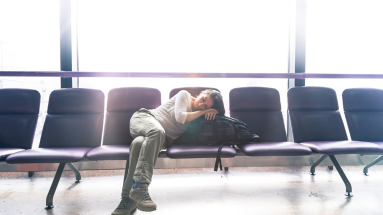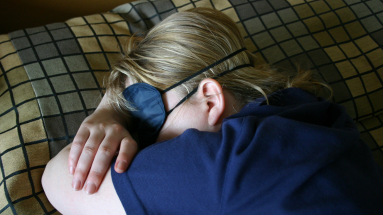Jet lag is a phenomenon many travellers experience, especially those who cross multiple time zones. It’s that groggy feeling when your body clock is out of sync with your time zone. But what causes it, and how can you manage it?
What is Jet Lag?
Jet lag occurs when your body’s internal clock, or circadian rhythm, is disrupted due to travelling across different time zones. This internal clock regulates various bodily functions, including sleep, and is influenced by external factors like light and temperature.

Causes of Jet Lag
The primary cause of jet lag is the rapid crossing of time zones, which confuses our body’s internal clock. Imagine your body is set to London time, but you’ve just landed in New York. Your body expects it to be evening, but it’s only midday. This misalignment is what causes the symptoms of jet lag.

How Long to Get Rid of Jet Lag?
The duration it takes to recover from jet lag can vary depending on the number of time zones crossed. Typically, the body can adjust to a new time zone at a rate of about one or two time zones per day. So, if you’ve crossed eight time zones, it might take your body up to eight days to fully adjust. However, many people adjust faster, especially with some coping strategies mentioned below.
Ways to Reduce Jet Lag
Jet lag might be inevitable for some, but there are ways to lessen its impact:
Pre-flight Preparations:
- Get plenty of rest before your journey.
- Adjust your sleep schedule a few days before departure to match the destination’s time zone.
During the Flight:
- Drink plenty of water to stay hydrated.
- Keep active by stretching and walking around the cabin.
- Try to sleep if it’s nighttime at your destination. Using an eye mask and earplugs can help.
- Avoid excessive caffeine or alcohol, as they can exacerbate jet lag.
Post-flight Adjustments:
- Adapt to the new time zone as quickly as possible.
- Set alarms to prevent oversleeping.
- Spend time outdoors during the day; natural light helps reset your body clock.
- Resist the urge to nap during the day
Short Trips and Jet Lag
For those on brief trips lasting 2 to 3 days, it might be beneficial not to adjust to the new time zone. This way, you won’t have to readjust when you return home.
Treatment for Jet Lag
While jet lag usually improves as your body adjusts, some treatments can help:
Medications and Their Efficacy:
- Sleeping tablets might be helpful for those struggling with insomnia. However, they can be addictive and should be used sparingly.
- Melatonin is a hormone that signals to our brain that it’s time to sleep. Some people take melatonin supplements, but their effectiveness for jet lag is still debated.
Natural Remedies:
- Exposure to natural light can help reset your circadian rhythm.
- Maintaining a healthy diet and staying hydrated can also aid recovery.
How to Sleep with Jet Lag?
Sleep disturbances are a hallmark of jet lag. Here are some tips to improve sleep:
- Create a Sleep-conducive Environment: Ensure your room is dark, quiet, and cool. Using earplugs, an eye mask, or white noise machines can help.
- Limit Screen Time: The blue light emitted by phones and laptops can interfere with melatonin production, a hormone that regulates sleep.
- Relaxation Techniques: Consider deep breathing exercises, meditation, or reading a book to wind down.
- Avoid Stimulants: Limit caffeine and nicotine intake, especially in the hours leading up to bedtime.
What Does Jet Lag Feel Like?
Jet lag can manifest both physically and mentally. Common symptoms include:
Physical Symptoms:
- Difficulty sleeping and waking up.
- Tiredness and exhaustion.
- Changes in appetite and digestive issues.
Mental Symptoms:
- Difficulty concentrating.
- Memory problems.
- Mild anxiety.
Wrapping Up
Jet lag is a common issue for long-haul travellers, but its effects can be lessened with the right preparations and adjustments. Remember, it’s all about helping your body adjust to a new rhythm. Safe travels!
